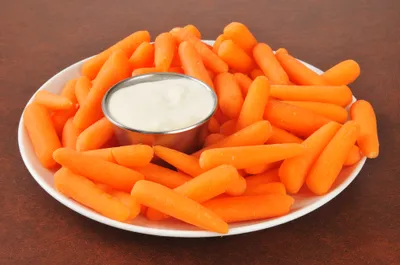You’ve likely heard the phrase, “Don’t sweat the small stuff,” right? Well, it turns out that the majority of us spend a great deal of time worrying about so-called ways to be healthy that aren’t actually based on scientific fact or worth our time.
The following six unfounded health anxieties have been long proven incorrect by health experts—so don’t worry, be healthy…
1. Coffee = Bad
If the idea of giving up your morning cup of java leaves you crying into your coffee pot—don’t give up your favorite caffeinated fix just yet! With scientists seeming to flip-flop weekend over the dangers vs. the benefits of too much coffee, it’s little wonder why so many people have come to believe the brew leads to heart disease and cancer.
Take it from researchers at Harvard’s School of Public Health, Department of Nutrition, who monitored the diet, lifestyle habits, and dangers of coffee consumption on the overall mortality of a group of 130,000 study participants between the ages of 40- and 59-years-old. Not only was zero relationship between coffee consumption and increased risk of death established, findings showed that even those who drank up to 6 cups of java daily had no serious detrimental health effects.
2. The Bad Rap for MSG
If you enjoy a weekly order of Chinese food, someone, somewhere, at some time has likely told you that MSG (or monosodium glutamate) is bad for your health. Even though the flavor enhancer has blamed for pretty much everything—from uncomfortable bloating to migraine headaches and from childhood obesity to allergic reactions—no actual scientific research substantiates the need for a “NO ADDED MSG” buffet table.
Professor Ken Lee, who works as the director of food innovation at Ohio State University slaps MSG toxic claims with a big “RIDICULOUS” label. “MSG has no kind of toxic or causative role in food allergies,” says Dr. Lee, especially considering that glutamate (the base component) is natural-occurring amino acid (glutamic acid) and sodium is basically table salt (and 10-percent of our daily recommended intake, as set by the Food and Drug Administration).
3. Shun Public Restrooms
Public restrooms are no germ-ridden than your house! Take that fact into consideration if you refuse to go anywhere near a public urinal. Are you ready for the gross truth of the matter? Here we go, microbiologists from the University of Chicago conducted a study on bacteria and viruses found in a series of public bathrooms and found that most of the bacteria present came from human skin and outdoor environments.
The study also found that fecal bacteria found in the restrooms contributed less than 15 percent of the total bacterial population. Plus, illness-causing fecal bacteria is far weaker than skin originating and die quickly when they come into contact with oxygen.
4. Vaccines Cause Autism
If this controversy didn’t catch your attention this year, you’re likely living under a rock. While no actual scientific evidence exists to suggest that autism is linked to vaccinations—mounting evidence from leading medical groups (including the American Academy of Pediatrics and the World Health Organization) is present to ascertain that childhood immunizations aren’t in any way linked to autism.
Even Autism Speaks Chief Science Officer, Dr. Rob Ring, spoke out about the lack of evidence between vaccines and autism, saying, “Autism Speaks’ own policy on vaccines echoes that of other credible healthcare organizations…we strongly urge [that] children receive the full benefits immunization offers in protecting [them] against a variety of preventable childhood diseases.”
5. Bleached Baby Carrots?
A few years back I remember recoiling from my bag of baby carrots when I heard a rumor that a bleach solution was used to preserve my favorite orange snack. I don’t know where it came from and I don’t know if I even read about it on any source more credible than Facebook (I’m being sarcastic). Sadly, I stopped buying my favorite bite-sized treat.
Luckily, a group of food microbiologists at Cornell University stepped up to save the day. Their findings revealed that while baby carrots are rinsed in an FDA-approved chlorine solution—they are not preserved in bleach. The study also found that this rinse is recommended by all pre-cut produce (i.e., fruit salad and frozen vegetables) to prevent salmonella, E. coli, and other foodborne bacteria.
6. Full-Fat Dairy vs. Low Fat Dairy
A few years back grocery shoppers unloaded their carts of low-fat milk, yogurt, cottage cheese, and cream cheese and re-loaded with whole milk, full fat cheeses, and full fat Greek yogurt because it reportedly had better health benefits. However, a 2015 study published in the European Journal of Nutrition, that’s not the case.
By opting for full-fat versions of your favorite dairy products, you may be actually putting yourself at risk of type II diabetes, cardiovascular disease, and no surprise, weight gain. Now these findings don’t suggest that low fat diary is any healthier when it comes to warding off the risk of heart disease or type II diabetes, but when it comes to weight loss—low fat is the better option or moderation of full fat diary is key.









